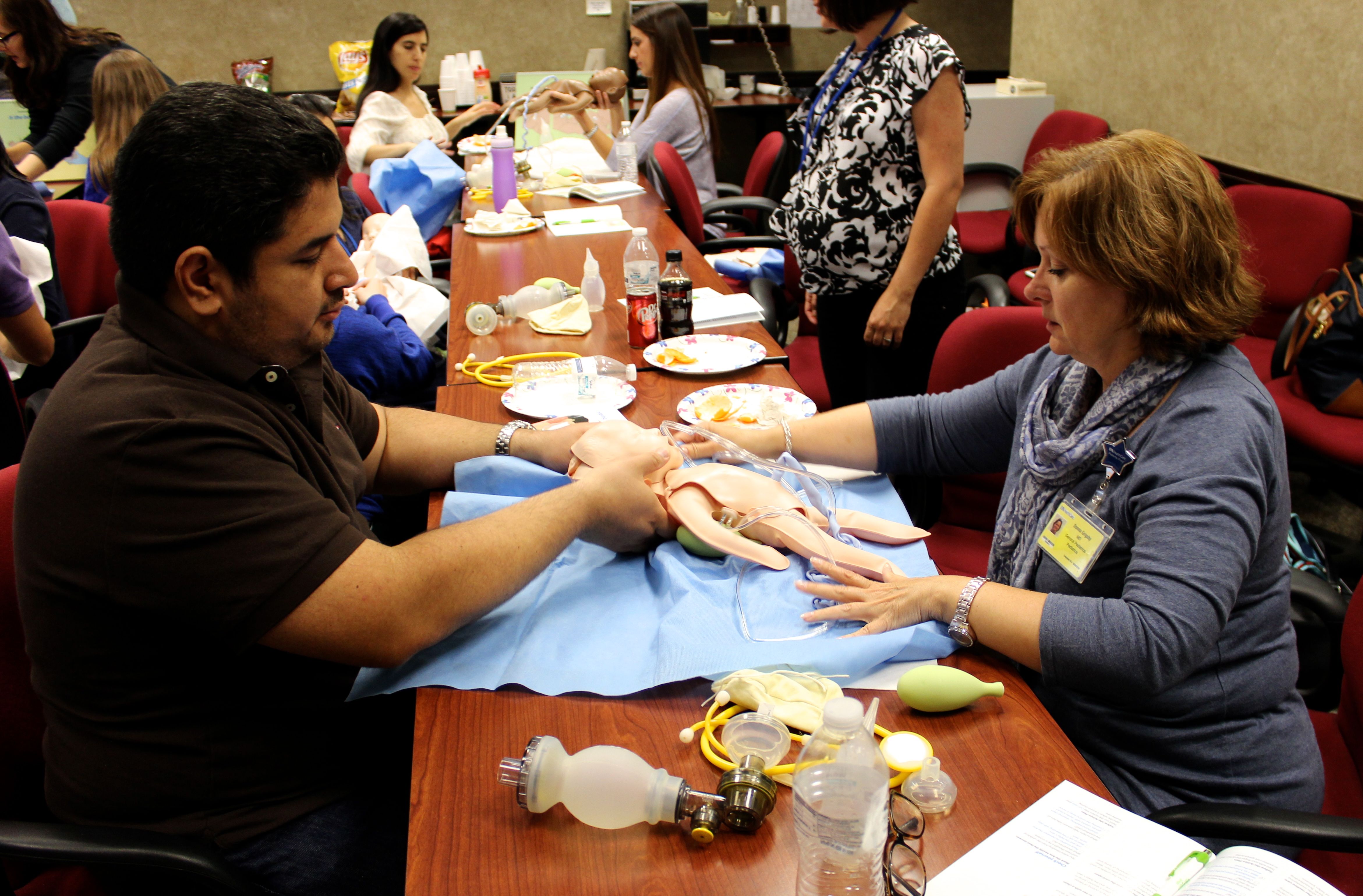Pediatric Residents Join Global Movement to Teach Life-Saving Resuscitation Skills
University of Kentucky medical residents, fellows and faculty members packed into a classroom next to the medical center library on July 16 to practice fundamental newborn resuscitation maneuvers on baby mannequins.
The Helping Babies Breathe training didn't teach these pediatric professionals anything new — they were all familiar with the process of drying, suctioning and ventilating a newborn with breathing problems. The purpose of the session was to take doctors through a step-by-step curriculum so they could become effective teachers of life-saving newborn resuscitation skills.
With these afterhours training sessions, the number of health professionals trained through the Helping Babies Breathe program is growing exponentially at University of Kentucky. Residents on the UK Global Health Track are sharing the curriculum with fellow residents, faculty pediatricians and nurses who volunteer as health professionals in developing countries where medical resources are limited. The Helping Babies Breathe curriculum, an initiative of the American Academy of Pediatrics, emphasizes a basic skill set that includes temperature support, breathing stimulation and assisted ventilation as needed during the critical "golden minute," the one-minute period immediately after birth.
After an initial group of residents received Helping Babies Breathe training at the University of Cincinnati in January, residents brought the curriculum back to UK. While medical professionals who complete the training do not receive an official certificate, they are listed as instructors on the Helping Babies Breathe website and encouraged to pass their training on to others in their profession. A group of residents and two faculty members received the peer-administered training at UK before traveling to Ecuador in May through UK Shoulder to Shoulder Global, a medical brigade that seeks opportunities to improve health of underserved communities around the world. There, the team used their training at a UK-supported health clinic to teach birthing attendants necessary measures to ensure babies are breathing at birth. A total of 36 residents, nurses and faculty members at UK have received the training to date.
Dr. Thomas Young, a professor of pediatrics at UK, helps coordinate international service trips for residents and faculty. A group of faculty and residents will hold training sessions in Ecuador next month and two medical residents are taking the curriculum to Zambia in January 2015. He said UK residents have joined a movement to spread a life-saving skill set across the world, and are enhancing their own medical expertise while doing it.
"This was a really exciting concept in getting our learners involved in teaching others," Young said. "The ultimate goal is to reach all those who deliver babies. There are a lot of parts in the world that don't have hospitals, and a lot of hospitals do not have skill set to do basic resuscitation."
Rachel Thomas, a third-year resident on the Global Health Track who conducted a training in Ecuador, said many of the birthing attendants were excited to learn new skills through the curriculum. She worked with a nurse who served as the only birthing attendant for an entire village. Even with her experience position, the nurse struggled to place a ventilation mask on the mannequin baby during the training.
"It was interesting to see she was the only nurse in the town, and she couldn’t do a simple task like that," Thomas said. "After working with her, she did well and she was so excited."
Joelle Paulozzi, the chief resident at UK, was also involved in the training of 24 birthing attendants in Ecuador. She said while most births go well, the residents are helping with the one case out of 10 when the baby experiences breathing complications. Paulozzi said spreading knowledge and watching trainees master important skills was a rewarding experience.
"Things like this build your confidence and make you feel better about what you do every day," she said.
MEDIA CONTACT: Elizabeth Adams, 859-323-2394; elizabethadams@uky.edu
